Each year, the Chicago Area Schweitzer Fellows Program offers seed grants to Fellows for Life interested in beginning, sustaining, or building on innovative community projects. Fellows for Life commit to designing, implementing, and reporting on direct service-oriented projects with existing community-based organizations. We are pleased to share our 2022-2023 Seed Grant recipients!
François Blumenfeld-Kouchner, 2010-2011 Fellow for Life and upcoming Palliative Care Physician with Northwestern Medicine in North and Northwest Regions, seeks to improve access to Palliative Care services for underserved patients primarily with cancer and other serious illnesses.
Through education of primary care providers and medical residents, as well as outreach and information of the local community directly and through community health workers, François, alongside Marie Fuentes-Harris, MSW, LCSW, Palliative Care Social Worker and Dr. Komal Zacharia, Palliative Care Physician, aims to improve access to both basic and specialized Palliative Care for uninsured patients suffering from advanced cancer in Lake County. This project plans to measure the extent of the need for specialized Palliative Care amongst this population and begin to address the gaps by assisting in transportation and/or access to telehealth for patients and their families.
Veronica Gonzalez, 2021-2022 Fellow for Life, Loyola University medical student, and emerging Emergency Medicine resident physician at Cook County Hospital, will work with case managers and social workers from local agencies and hospitals to create a training program for resident physicians to introduce them to the resources for their patients experiencing homelessness and provide concrete tools for receiving warm hand offs from community centers and coordinating safe discharge from the hospital.
Her project aims to improve health care team communication for people experiencing homelessness in Chicago. Currently, many patients who are homeless may have biases against seeking out care in an emergency room. By working with social work services (such as Housing Forward and The Night Ministry) that serve our patients, a training protocol can be developed that is interdisciplinary and focused on the needs of patients and their case managers. This can help physicians work in teams with their hospital social workers to assure clients’ case managers are included in discharge plans.
Saria Lofton, 2009-2010 Fellow for Life and Assistant Professor at the University of Illinois at Chicago, will work with Good Food is Good Medicine to adapt and pilot a 6-session cooking class for Black women with hypertension and obesity that reside in communities with low food access.
Black women are more likely to have hypertension in their lifetime than any other racial/ethnic group of women, and hypertension rates for Black adults in the US are amongst the highest in the world. Access to affordable healthy foods in the neighborhood environment contributes to poor diet quality. In Chicago, obesogenic food environments in segregated Black communities have contributed to disparate access to healthy foods and have led to food swamps. In food swamps, access to high-quality, unprocessed foods is limited while highly processed and fast foods are abundant and heavily promoted, which contributes to hypertension and obesity health disparities.
Natali Smiley, 2021-2022 Fellow for Life and Rush University medical student, will collaborate with World Relief, working with immigrants and refugees in concrete ways to build health literacy and confidence for these new arrivals.
Continuing her health literacy project with World Relief working with newly arriving and resettling Afghan refugees, her project will have a two-fold focus: firstly, providing tools for navigating the stressors of accessing health care, and secondly, continued hosting of women’s discussion groups. Natali will address the need for support and capacity-building for community members who have a long list of things they must do as a part of their resettlement process, while also hosting regular times for Afghan women to discuss health topics.
